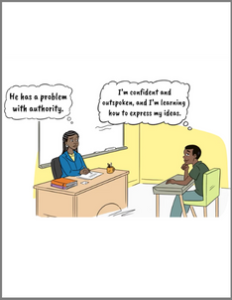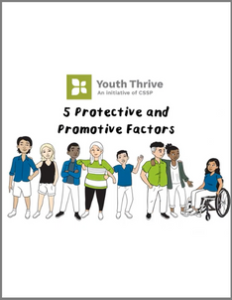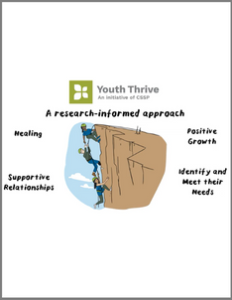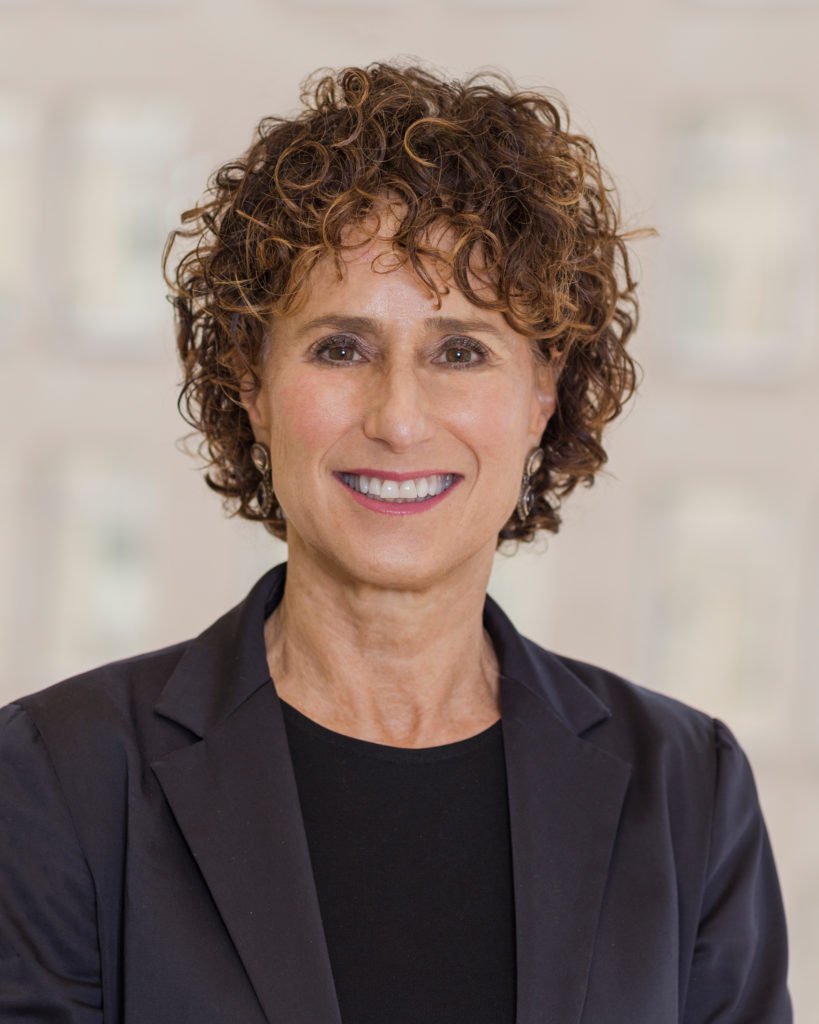
Youth Thrive is currently being implemented in multiple jurisdictions across the country and CSSP has been providing technical assistance and creating a learning network with six sites. These sites are working to integrate the Youth Thrive Framework into their agency and organization’s policies, programming, practice, contracts, and training of staff. Our agency partners in this leaning network include:
In addition, Youth Thrive also has special projects with Bravehearts in Westchester NY, working with young leaders on advocacy in the courtroom and aftercare services, and with Wyman Center in St. Louis, MO on training police officers and other community providers on Youth Thrive.
Youth Thrive’s approach includes:
Providing technical assistance to public youth-serving agencies on transforming their system so that it aligns with the research on adolescent development and the supports youth need to thrive.
Working on the ground in communities and in public agencies to provide training and technical assistance for the people who work most closely with youth. We provide resources for families and foster parents, child welfare staff, youth workers, and probation and police officers and help stakeholders understand and deliver what young people need to become healthy and productive adults.
Providing opportunities for youth to become change agents in their communities and within public systems—working to reimagine policies and programs so that they reflect what youth need.
Advocating for national and state policies based on the latest research in adolescent development and programs that best assist young people.
Partnering with organizations and agencies across cities, regions, and states to advance understanding of the skills and supportive environments all youth need to thrive.
Building a network of champions by identifying leaders from programs that exemplify the values of Youth Thrive to serve as its ambassadors.
This mix of service and advocacy offers compelling examples of how to reframe the prevailing narrative about youth and create system changes to support the strengths and potential of all young people.
PLEASE NOTE: For our Youth Thrive trainers, please complete the Youth Thrive Training Report each time you lead a training.
Thousands of direct services workers, supervisors, advocates, and young people themselves have been trained on the Youth Thrive Framework and how to identify and support the growth of Protective and Promotive Factors in youth. Youth Thrive training has been held in dozens of states with representatives from hundreds of agencies and organizations working with young people in communities across the country.
Creating and spreading new training is a top priority for Youth Thrive as it is a critical first step in transforming practice. Practice changes can be supported and reinforced with additional Youth Thrive tools, resources, and related strategies that promote healthy adolescent development. Training helps all staff who have direct contact with young people—caseworkers, youth workers, supervisors, teachers, probation officers, service providers—learn about adolescence and how to apply new knowledge to their interactions with youth.
For information on Youth Thrive Training options, please review our FAQ document that includes detailed descriptions of:
There are three additional modules available to supplement Youth Thrive core content and can be used for workshops or professional development opportunities with youth services workers You can access these modules at the links below:
CSSP reviewed numerous research studies and findings on resilience, positive youth development, neuroscience, and trauma to come up with the Youth Thrive Framework. We synthesized information on what reduces the impact of negative life experiences and what increases the likelihood of healthy development, healing, and well-being and for all youth. Building on that research, the Youth Thrive Framework provides a clear and compelling way to think about what youth need in order to thrive.
The Framework applies to older children, teenagers, and young adults and is relevant to all youth between the ages of 9 and 26 years old The heart of the Framework is five Protective and Promotive Factors that mitigate risk and promote well-being:
- Youth Resilience: Managing stress and functioning well when faced with stress, challenges, or adversity.
- Social Connections: Having healthy, sustained relationships with people, places, communities, and a force greater than oneself that promote a sense of trust, belonging, and that one matters.
- Knowledge of Adolescent Development: Understanding the unique changes and assets of adolescence and implementing policies and practices that reflect a deep understanding of development.
- Concrete Support in Times of Need: Making sure youth receive quality, equitable, respectful services that meet their basic needs (health care, housing, education, nutrition, income), and teaching youth to ask for help and advocate for themselves.
- Cognitive and Social-Emotional Competence: Acquiring skills and attitudes that are essential for forming an independent, positive identity and having a productive and satisfying adulthood.
The Youth Thrive Theory of Change uses a garden analogy to show how young people need support to grow and thrive. The Theory of Change highlights our Key Values and the importance of increasing protective and promotive factors and reducing risk factors to achieve dynamic outcomes for youth.
Partners
We work closely with six jurisdictions that are implementing the Youth Thrive Framework:
Exemplary Initiatives
Training Partners:
Youth and Young Adult Partners:
- Elevate
- Foster Youth in Action
- Bravehearts
- Westchester, NY
Research Partner:
The Youth Thrive Survey™ is a valid and reliable youth self-report instrument that measures the presence, strength, and growth of the Youth Thrive Protective and Promotive Factors as proxy indicators of well-being. Designed with significant input from youth and young adults and taking less than 15 minutes to complete, the survey can be an effective tool for informing case planning and practice, evaluation, and continuous quality improvement (CQI) purposes. The Youth Thrive Survey is free and provides an array of data reports that can be used to inform policy and practice decisions, and measure positive indicators of well-being for youth and young adults. The Youth Thrive Survey is available in both English and Spanish. Learn more in our one-pager.
Existing Survey participants may log in here.
Click here to access the Youth Thrive Survey User Manual. Find a tip sheet for youth-serving professionals to understand the relevance of the Youth Thrive Survey and how it can best help young people.
Click here to view a tutorial on using the Survey Instrument for Organizational Admin.
If you have any questions about the Youth Thrive Survey, or need support, please complete the questionnaire to request assistance.
To obtain a log in, please click one of the following links:
The Youth Thrive Blueprint is:
- A practice resource for youth-serving agencies and organizations to advance the well-being of young people—ages 9-26 years.
- Full of actionable ideas and tools to build young people’s strengths and Protective and Promotive Factors.
- Developed with a focus on young people in foster care and relevant to other settings such as: afterschool and community-based youth programs, juvenile court systems, programs for young people experiencing homelessness.
- For any person who wants to promote thriving in young people.
Access the Youth Thrive Blueprint here.
Video
Youth Thrive Alive! Forum: Concrete Supports through Direct Cash Transfer
April 2024
The YouthNPower: Transforming Care Collective, which in 2023 launched the first direct cash transfer (DCT) pilot for youth transitioning from foster care, designed with young people who have lived expertise in the child welfare system. This NYC pilot is part of a larger participatory research and advocacy project to document the impact of unconditional cash support for young adults who have recently left the child welfare system to learn more about the conditions facing young people as they navigate life after foster care, and to advocate for policy and program changes that will enrich their lives and help them thrive. The panel shared:
- An introduction to the intergenerational YouthNPower collective and its approach combining research, advocacy, and organizing
- Information about the Direct Cash Transfer pilot design
- Preliminary findings of the pilot’s Participatory Action Research
Video
Youth Thrive Alive! Forum: Activate Tools for 2023 and Beyond January
January 2023
In 2022, Youth Thrive created new, dynamic tools and resources that youth-serving agencies and organizations can use to understand adolescent development and promote youth well-being. In this webinar, we showcased the latest tools and resources, including the Social Connections Module, co-developed by Dr. Julie Radlauer-Doerfler, Chief Executive Officer and Founder of Collectively.
Video
Youth Thrive Changing Perspectives
May 2022
Video
The Five Protective and Promotive Factors
May 2022
Youth Thrive’s five Protective and Promotive factors are five essential elements that research tells us help young people thrive, even in the face of adversity.
The Five Factors are: Youth Resilience. Social Connections. Knowledge of Adolescent Development. Concrete.
This video reviews each factor, why it is important, and how taken together they contribute to young people’s overall well-being.
Video
Youth Thrive Overview
May 2022
Report
Youth Thrive Survey User Manual
September 2020
This manual explains how to use the Youth Thrive Survey Instrument including how and why to use the survey, target populations for the survey, and data collection and use.
(73pp)
Brief
Youth Thrive: A Framework to Help Adolescents Overcome Trauma and Thrive
2015
This brief describes Youth Thrive's protective and promotive factors framework and examines how a focus on thriving is necessary to complement the field’s growing move to become trauma-informed.
(20 pp)
Report
Youth Thrive: Advancing Healthy Adolescent Development and Well-Being
September 2014
This report provides a synthesis of the ideas and research from the neurobiological, behavioral, and social sciences that inform the Youth Thrive Protective and Promotive Factors Framework.
(52 pp)
Brief
Youth Thrive: Youth Resilience
This brief discusses the importance of resilience and being able to call forth their inner strength to positively meet challenges, manage adversities, heal the effects of trauma, and thrive.
(2 pp)
Brief
Youth Thrive: Social Connections
This brief discusses how social connections—people and institutions—help youth increase their knowledge and develop their skills. This helps find a sense of belonging and meaning in their lives.
(2 pp)
Brief
Youth Thrive: Knowledge of Adolescent Development
This brief discusses the importance of having accurate knowledge of adolescent development, which is critically important because beliefs about youth influence perceptions and treatment of young people.
(2 pp)
Brief
Youth Thrive: Cognitive and Social-Emotional Competence in Youth
This brief discusses the importance of cognitive and social-emotional competence in adolescence, which lays the foundation for forming independent identity and having a productive, responsible, and satisfying adulthood.
(2 pp)
Brief
Youth Thrive: Concrete Support in Times of Need
This brief discusses the importance of helping youth identify, find, and receive concrete support in times of need to ensure they receive necessities everyone deserves in order to grow and thrive.
(2 pp)
Brief
Youth Thrive: Protective and Promotive Factors
This brief gives an overview of Youth Thrive’s five protective and promotive factors. It lists their constructs and core meanings.
(2 pp)
Brief
Building the Youth Thrive Framework in Jurisdictions
August 2015
This brief provides an introduction to Youth Thrive—including its vision, its stages of implementation, and guiding questions for public agencies.
(6 pp)










